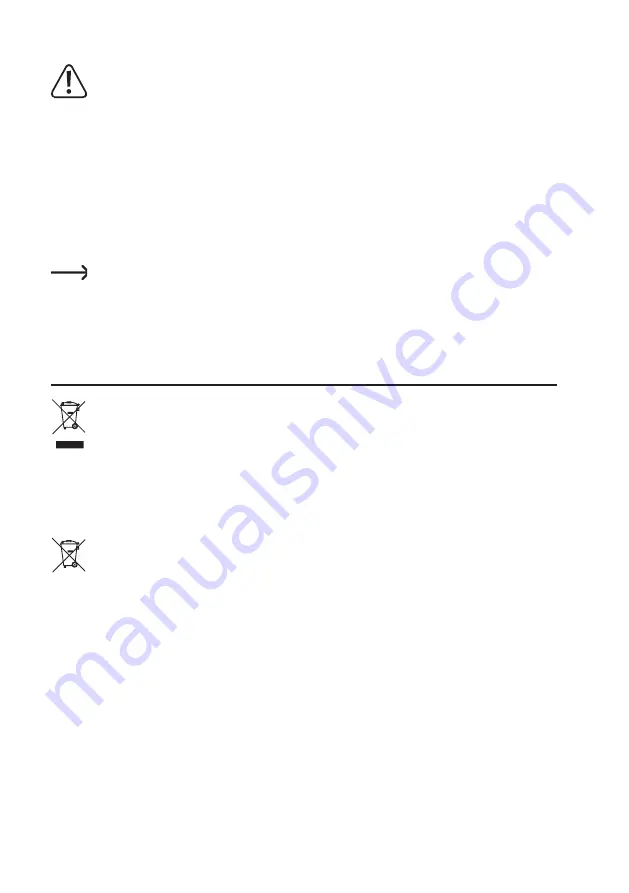
51
Never use the multimeter when it is open. FATAL HAZARD!
Do not leave empty batteries in the device. Even leakproof batteries may corrode and destroy the
device or release chemicals that are detrimental to your health.
Do not leave batteries unattended. They may be swallowed by children or pets. Seek immediate
medical attention if a battery is swallowed.
If you do not plan to use the multimeter for an extended period, remove the battery to prevent it
from leaking.
Leaking or damaged batteries may cause acid burns if they come into contact with your skin.
Always use protective gloves when handling leaking or damaged batteries.
Batteries must not be short-circuited or thrown into open flames!
Do not recharge or disassemble non-rechargeable batteries. This may cause a fire or explosion.
Use the following item number to order compatible Alkaline batteries:
Item no. 65 22 78 (3 pcs, please order 1x).
Only use alkaline batteries, as alkaline batteries are more powerful and have a longer lifespan.
12. Disposal
Electronic devices are recyclable waste and must not be placed in household waste. At the end of its
service life, dispose of the product according to the relevant statutory regulations.
Remove the inserted batteries and dispose of them separately from the product.
Battery disposal
You are required by law to return all used batteries
(Battery Ordinance)
.
They must not be placed in household
waste!
Batteries that contain hazardous substances are labelled with these symbols to indicate that disposal in
household waste is forbidden. The abbreviations for heavy metals in batteries are:
Cd
= Cadmium,
Hg
=
Mercury,
Pb
= Lead. Used batteries can be returned to local collection points, our stores or battery retailers.
You thus fulfill your statutory obligations and contribute to the protection of the environment.
Summary of Contents for 1693351
Page 114: ...114 ...
Page 115: ...115 ...
















































